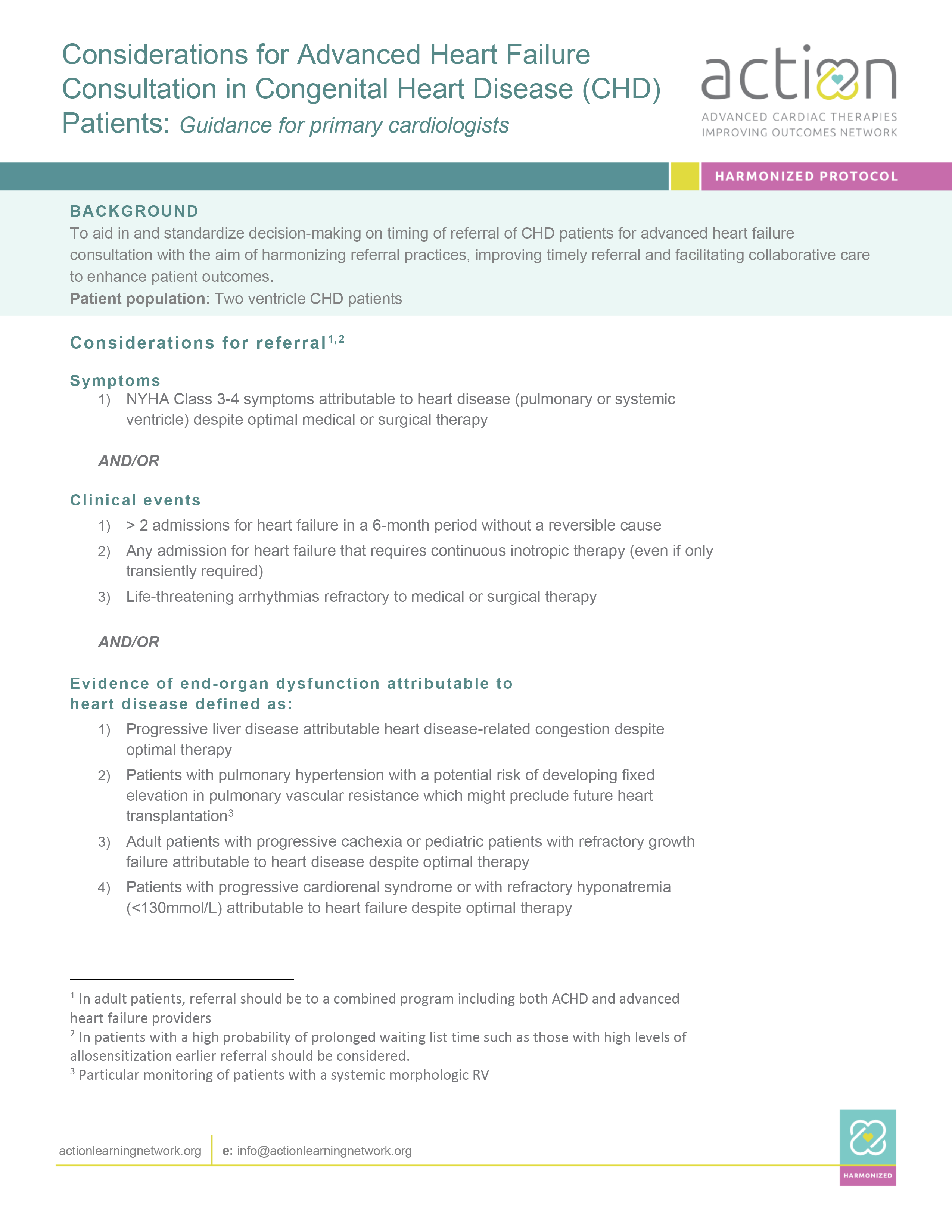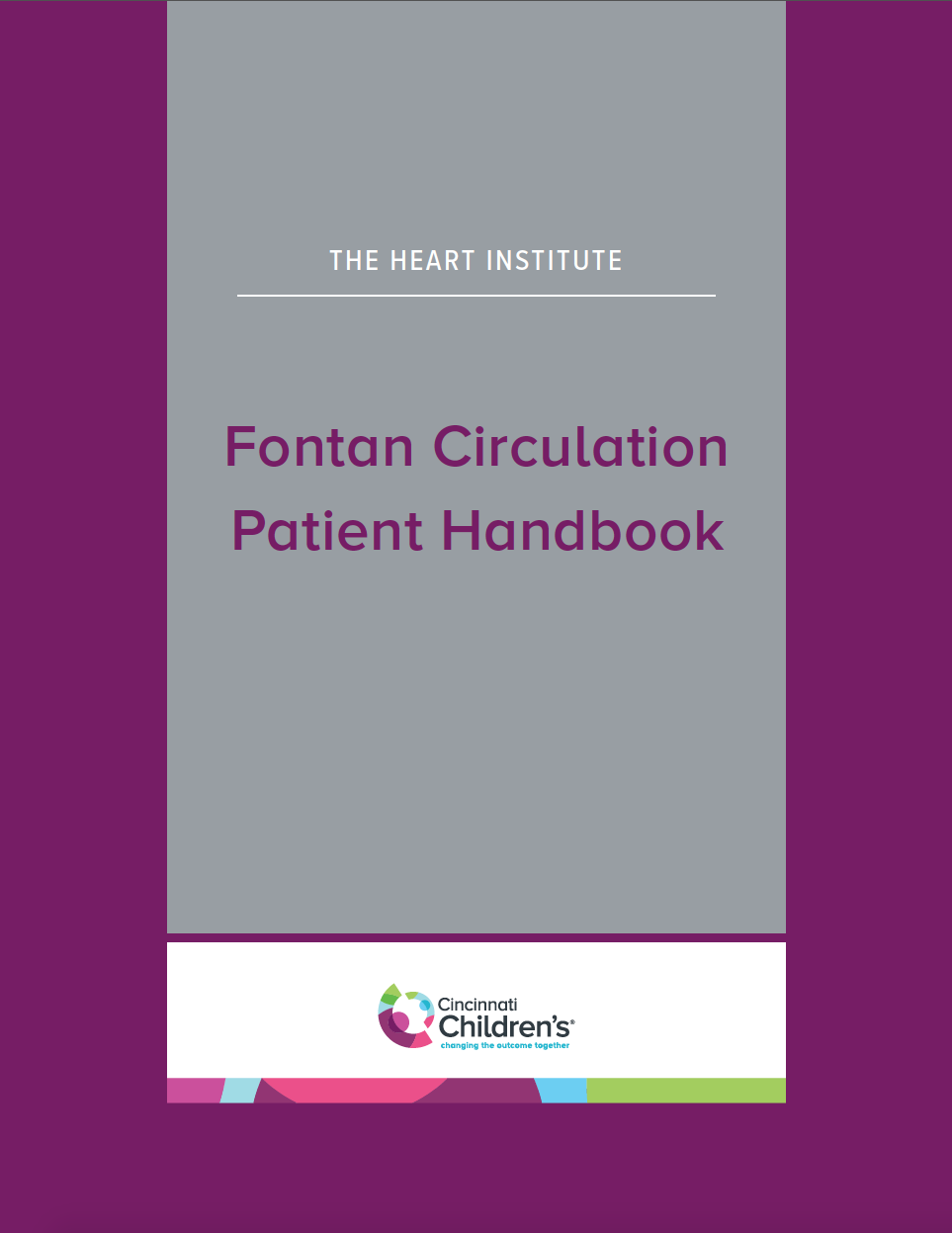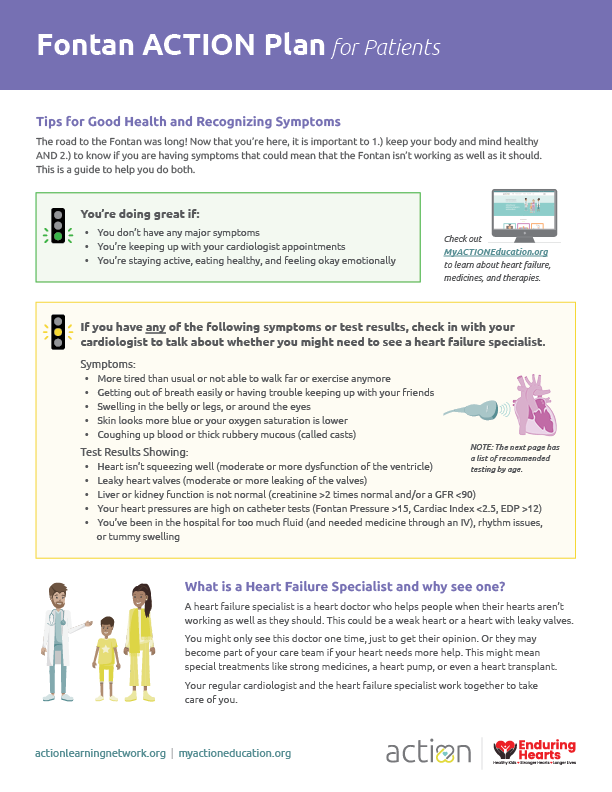Congenital Heart Disease
Overview
Overview
Congenital Heart Disease Resources
Check out our additional resources for children and adults with congenital heart disease below.
Mechanical Circulatory Support (MCS) in ACHD Patients
Ventricular assist devices can help adults with congenital heart disease live longer, healthier, better quality lives.
Considerations for Advanced Heart Failure Consultation in Congenital Heart Disease (CHD) Patients (CHD Referral)
Learn what factors your doctor considers when referring CHD patients for advanced heart failure consultation.
HeartMate 3™ LVAD ACHD Patient Journey
Everyone’s journey will look a little different. Use this map to get a feel for what lies ahead. It will also help you understand when you should be reading and learning about different phases of the journey.
Scroll down to explore specific types of congenital heart disease.
-
Fontan Failure
Fontan Failure

Fortunately, like with other types of CHD, cardiologists and cardiac surgeons have discovered ways to allow you to survive and thrive throughout childhood with only one ventricle. If you were born with only one ventricle, you likely went through several heart surgeries early in your life and may now have a Fontan circulation. The Fontan circulation is developed when a pediatric cardiac surgeon creates a pathway for blood to return to your lungs for oxygen directly, without circulating through a ventricle. This frees up the one ventricle you have to do the hard work of pumping your blood out to your body. While the Fontan circulation can be very successful, in some cases, the one ventricle will not be able to do all the work of two ventricles and you may experience heart failure. If you have a Fontan circulation and are starting to experience heart failure, you might feel like it’s hard to catch your breath or like your heart is beating in a weird rhythm. Your skin may be more blue-tinted than usual, or you may have swelling in certain areas of your body. Occasionally, because pediatric cardiac surgeons had to make some unnatural changes in your body to create the Fontan circulation, you may develop chronic liver disease, renal insufficiency/failure, and/or problems with your intestines leading to malnutrition.
Brooklyn’s Journey
If you are a patient and have a Fontan circulation and have symptoms of heart failure that can’t be controlled with medications, you may need a VAD or a transplant. VADs can help as a form of long-term therapy or they can help you survive until it’s time for your transplant. Watch now to see how ACTION is helping patients with a Fontan circulation, like Brooklyn, to live longer and healthier lives. We are actively collaborating, sharing, and innovating to figure out how best to provide life-saving therapies for Fontan patients.
Fontan Circulation Patient Handbook
As someone who was born with a single ventricle heart, you have special health concerns now. This book was written by Cincinnati Children’s Fontan team for patients who had Fontan heart surgery.
Fontan Action Plan for Patients
This Action Plan is meant to help empower patients with a Fontan, and their caregivers, to take charge of their health and understand potential warning signs that should be examined. The goal of involving a Heart Failure Specialist early is to introduce medicines or other interventions early, with the hope of reducing symptoms and improving the outcomes.
Fontan Resources
For more information about Fontan, see the following resources.
When you are faced with a lifelong heart condition such as congenital heart disease, it can help to connect with others who get what you’re going through. Support groups offer a way to bring people together to share information. This can also help reduce stress and worry and provide helpful education.
Mended Hearts/Mended Little Hearts
mendedhearts.org
Sisters by Heart
sistersbyheart.org
The Adult Congenital Heart Association (ACHA)
achaheart.org
Fontan Failure

Fortunately, like with other types of CHD, cardiologists and cardiac surgeons have discovered ways to allow you to survive and thrive throughout childhood with only one ventricle. If you were born with only one ventricle, you likely went through several heart surgeries early in your life and may now have a Fontan circulation. The Fontan circulation is developed when a pediatric cardiac surgeon creates a pathway for blood to return to your lungs for oxygen directly, without circulating through a ventricle. This frees up the one ventricle you have to do the hard work of pumping your blood out to your body. While the Fontan circulation can be very successful, in some cases, the one ventricle will not be able to do all the work of two ventricles and you may experience heart failure. If you have a Fontan circulation and are starting to experience heart failure, you might feel like it’s hard to catch your breath or like your heart is beating in a weird rhythm. Your skin may be more blue-tinted than usual, or you may have swelling in certain areas of your body. Occasionally, because pediatric cardiac surgeons had to make some unnatural changes in your body to create the Fontan circulation, you may develop chronic liver disease, renal insufficiency/failure, and/or problems with your intestines leading to malnutrition.
Brooklyn’s Journey
If you are a patient and have a Fontan circulation and have symptoms of heart failure that can’t be controlled with medications, you may need a VAD or a transplant. VADs can help as a form of long-term therapy or they can help you survive until it’s time for your transplant. Watch now to see how ACTION is helping patients with a Fontan circulation, like Brooklyn, to live longer and healthier lives. We are actively collaborating, sharing, and innovating to figure out how best to provide life-saving therapies for Fontan patients.
Fontan Circulation Patient Handbook
As someone who was born with a single ventricle heart, you have special health concerns now. This book was written by Cincinnati Children’s Fontan team for patients who had Fontan heart surgery.
Fontan Action Plan for Patients
This Action Plan is meant to help empower patients with a Fontan, and their caregivers, to take charge of their health and understand potential warning signs that should be examined. The goal of involving a Heart Failure Specialist early is to introduce medicines or other interventions early, with the hope of reducing symptoms and improving the outcomes.
Fontan Resources
For more information about Fontan, see the following resources.
When you are faced with a lifelong heart condition such as congenital heart disease, it can help to connect with others who get what you’re going through. Support groups offer a way to bring people together to share information. This can also help reduce stress and worry and provide helpful education.
Mended Hearts/Mended Little Hearts
mendedhearts.org
Sisters by Heart
sistersbyheart.org
The Adult Congenital Heart Association (ACHA)
achaheart.org





